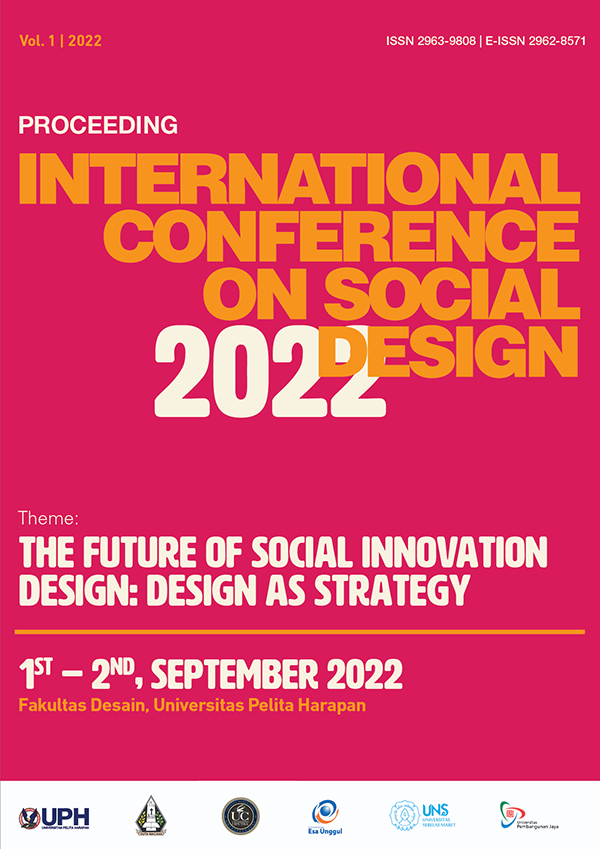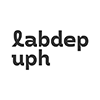Comparison of Designer’s Productivity in Online and Offline Working Systems
Abstract
The covid-19 pandemic has forced changes in human behavior in activities, including the interior design studio work system. Online communication media that continues to develop as the pandemic progress affects designers’ daily workflow and their productivity in carrying out responsibilities in the office. It is essential to adjust the communication process between apprentices of design studios’ work systems. This paper discusses the optimal application of WFO and WFH in a complex design process, in which achieving optimal productivity requires a hybrid work system. The direction of the design world’s work system development during the pandemic becomes the focal point of the discussion. The analysis was carried out through the interpretive lens method, ethnography, in which the data were collected through interviewing Interior Design Scholars as outsider participant observers, as well as having semi-structured interviews with informants to obtain in-depth data while keeping the topic on track.
Literaturhinweise
Adiputra, C. P., & Team, R. T. (2021). Work from home (WFH) vs work from office (WFO): Pro Dan Kontra. Learning Management System #1 Indonesia untuk Perusahaan Anda. Retrieved July 19, 2022, from http://www.ruangkerja.id/ blog/work-from-home-wfh-vs-work-from-office-wfo-pro-kontra
Fowell, Tiffany (2022). What is hybrid work and why do employees want it? Envoy. Retrieved July 19, 2022, from https://envoy.com/blog/what-is-a-hybrid- work-model/
Geertz, C. (1973). The Interpretation of Cultures: Selected Essays. Basic Books.
Gensler (2019), U.S. Workplace Survey 2019, Gensler Research Institute. https://www. gensler.com/uploads/document/614/file/Gensler-US-Workplace-Survey-2019.pdf
Karimi, S., Mohammadinia, L., Mofid, M., Javadi, M., & Torabi, R. (2014). The Relationship between Sociability and Productivity. https://doi. org/10.4103/2277-9531.139696
KlindzÌŒicÌ, M., & MaricÌ, M. (2019). Flexible work arrangements and organizational performance - the difference between employee and employer-driven practices. Drustvena Istrazivanja, 89-108. https://doi.org/10.5559/di.28.1.05
Mann, C., & Stewart, F. (2009). In Internet communication and Qualitative Research: A handbook for researching online. essay, Sage.
Miller, H. (n.d.). The Future Of Work: Point of View, 3-5. https://doi.org/https:// hmdp-cdn.nyc3.digitaloceanspaces.com/content/campaigns/hm-the- future-of-work-research-paper.pdf
Saleem, A., & Abbasi, A. S. (2015). IMPACT OF LIFE AND JOB DOMAIN CHARACTERISTICS ON WORK LIFE BALANCE OF TEXTILE EMPLOYEES IN PAKISTAN. https://doi.org/https://www.researchgate. net/publication/288828970_IMPACT_OF_LIFE_AND_JOB_DOMAIN_ CHARACTERISTICS_ON_WORK_LIFE_BALANCE_OF_TEXTILE_ EMPLOYEES_IN_PAKISTAN
Yang, L., Holtz, D., Jaffe, S., Suri, S., Sinha, S., Weston, J., Joyce, C., Shah, N., Sherman, K., Hecht, B., & Teevan, J. (2021). The effects of remote work on collaboration among information workers. Nature Human Behaviour, 6(1), 43-54. https://doi.org/10.1038/s41562-021-01196-4





1.png)
